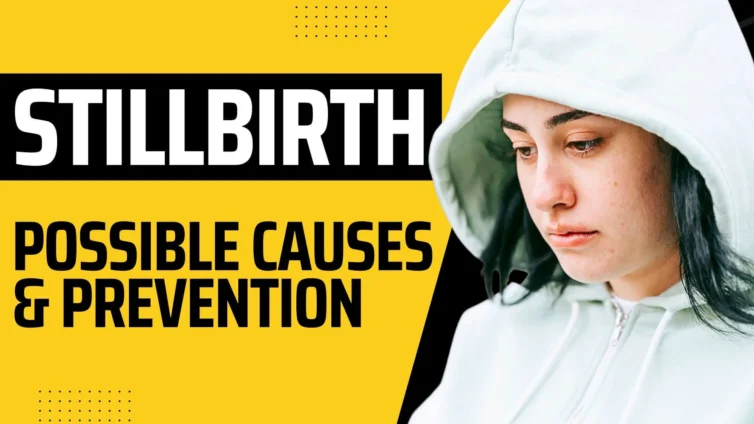
Pregnancy is a time of profound transformation, and it’s not just your belly that’s growing! Many women notice significant changes in their hair during this exciting period. From thicker strands to unexpected hair loss, the hormonal roller coaster of pregnancy may lead to a variety of hair changes.
But what exactly causes these changes, and how can you manage them? Whether you’re marveling at your new head of hair or struggling with unwanted body hair, understanding the underlying causes can help you embrace these natural changes with confidence and grace. Let’s dive into the fascinating world of pregnancy hair changes and discover what’s behind these common phenomena.
Introduction to Hair Changes During Pregnancy
During pregnancy, the body undergoes significant hormonal changes that can affect various aspects of a woman’s appearance, including her hair. Some women may notice that their hair becomes thicker and more lustrous, while others might experience hair loss or changes in hair texture. These changes are natural and usually temporary, often returning to normal a few months after giving birth.
Why Does Hair Become Thicker During Pregnancy?
During pregnancy, the growth phase of the hair cycle, known as the anagen phase, is extended. This means that hair is less likely to fall out, and many women notice that their hair feels thicker and fuller. This phenomenon is primarily due to increased estrogen levels, which keep more hairs in the growing phase of its cycle.
Estrogen is a key hormone that affects hair growth during pregnancy. It extends the anagen or growing phase, leading to less shedding and often resulting in thicker hair. This can be a welcome change for many women, as it often enhances the appearance of the hair, making it look more voluminous and healthy.
However, it’s essential to note that these changes are usually temporary. After giving birth, estrogen levels decrease, and many women experience a return to normal hair thickness. Some may even experience postpartum hair loss, which we will explore in the next section.
However, these hormonal changes during pregnancy can also lead to some unexpected effects. For example, some women may notice increased body hair or changes in hair texture. Understanding these hormonal fluctuations can help women confidently embrace and manage these changes.
For more insights into the mysteries of the first trimester, including hormonal changes, you can visit our guide to the first trimester.
Can Pregnancy Cause Hair Loss?
Postpartum hair loss is a common experience for many new mothers. As estrogen levels drop after giving birth, many hairs that were in the extended growing phase shift into the shedding phase. This can lead to noticeable hair loss, often peaking around three to four months after delivery.
While this can be distressing, it’s essential to understand that this is a normal part of the body’s adjustment to post-pregnancy hormonal levels. Most women find that their hair returns to its pre-pregnancy thickness and texture within six to twelve months.
For more information on common body changes during pregnancy, including hair loss, you can explore our guide to 13 unmissable body changes during pregnancy.
How Does Pregnancy Affect Body Hair?
Pregnancy doesn’t just affect the hair on your head; it can also lead to changes in body hair. Some women may notice that their body hair grows faster or becomes coarser. This is due to the same hormonal changes that can make the hair on your head thicker.
These changes in body hair can be surprising, but they’re usually temporary. After giving birth, body hair growth typically returns to normal as hormone levels stabilize.
Unwanted hair growth during pregnancy can be a source of discomfort for some women. While these changes are natural and usually temporary, there are ways to manage them if they become bothersome.
Shaving and waxing are generally considered safe during pregnancy, but it’s always a good idea to be gentle and use products designed for sensitive skin. If you’re considering more permanent hair removal methods, such as laser treatments, it’s best to consult with your doctor to ensure they are appropriate for your specific situation.
Understanding these changes and knowing they are temporary can help women feel more comfortable and confident during this exciting time. Whether you’re enjoying thicker, glossier hair or dealing with unexpected body hair, knowing what to expect and how to manage these changes can make the pregnancy journey more enjoyable.
For tips on managing various discomforts during pregnancy, you can visit our guide to the top 21 discomforts during pregnancy.
Are Hair Treatments Safe During Pregnancy?

Pregnancy brings about many changes, and you may wonder if your regular hair treatments are still safe. When it comes to hair dye and straightening treatments, the general consensus is that they are likely safe to use during pregnancy. However, there are some considerations to keep in mind.
Hair dye, especially permanent types, contains chemicals that could be absorbed through the skin. While there’s no concrete evidence that these chemicals harm the baby, some women choose to wait until after the first trimester to dye their hair as a precaution. Opting for natural or vegetable-based dyes may also be a more comfortable choice for expectant mothers.
Hair straightening treatments can vary widely in their chemical composition. If you regularly use these treatments, it’s wise to consult with your doctor to ensure that the specific products you use are safe during pregnancy. You can also explore our guide to medicines when pregnant for more information on what’s safe to use.
If you’re concerned about using chemical treatments during pregnancy, there are plenty of natural alternatives to keep your hair looking great. Embracing your natural hair texture, using gentle shampoos, and nourishing your hair with natural oils like coconut or olive oil can keep your hair healthy and vibrant.
For more tips on maintaining a healthy lifestyle during pregnancy, you can refer to our essential roadmap to a healthy pregnancy.
What Happens to Hair and Nails During Pregnancy?
Have you noticed that your nails are growing faster along with your hair during pregnancy? You’re not alone! Many women experience changes in both hair and nail growth. This is largely due to increased blood flow and hormones, particularly estrogen, which promotes growth in both areas.
Your nails may become stronger and grow faster, just like your hair. However, some women might experience the opposite, with nails becoming more brittle. These changes are temporary and usually return to normal after giving birth.
How to Manage Common Pregnancy Hair Changes?
Here are some practical tips to help you manage the hair changes during pregnancy:
- Embrace the Changes: Your hair may become thicker and more lustrous. Enjoy it! This is a common change during pregnancy, thanks to increased hormones.
- Gentle Care: If you notice your hair shedding more than usual, be gentle with it. Use a wide-toothed comb and avoid tight hairstyles that can pull at the hair.
- Stay Nourished: Eating a balanced diet rich in vitamins and minerals supports healthy hair growth. Include foods rich in biotin, vitamin E, and omega-3 fatty acids.
- Avoid Over-Styling: Limit the use of hot styling tools, as they can weaken the hair. Embrace your natural texture during this time.
- Consult Your Doctor if Concerned: If hair changes are worrying you, don’t hesitate to talk to your doctor. They can provide reassurance and guidance tailored to your situation.
While most hair changes during pregnancy are normal and temporary, significant hair loss or other unusual changes might warrant a visit to the doctor. Your doctor can assess your specific situation and rule out any underlying health concerns.
What is Telogen Effluvium, and How Does It Relate to Pregnancy?
Telogen effluvium is a temporary hair loss condition that can occur after significant stress or hormonal changes, including pregnancy. It happens when more hairs than usual enter the resting phase of the growth cycle, leading to increased shedding.
This condition is common during pregnancy and even more so in the months after giving birth. It’s usually temporary and resolves on its own as hormone levels return to normal.
During pregnancy, increased estrogen levels often lead to thicker hair. However, after giving birth, these levels drop, and the hair that was in the growing phase may suddenly shift to the shedding phase. This can result in noticeable hair loss, known as postpartum hair loss, a form of telogen effluvium.
The good news is that this hair loss is typically temporary. Most women find that their hair begins to return to its pre-pregnancy thickness within six to twelve months after delivery.
Key Takeaways
Key Takeaways
Hair Changes During Pregnancy: Expect changes like thicker hair and possible hair loss due to hormonal fluctuations.
Body Hair Changes: Pregnancy may affect body hair, requiring gentle care and attention.
Safe Hair Treatments: Natural hair care is recommended, and some chemical treatments may be safe during pregnancy.
Holistic Approach: A balanced diet, hydration, and stress management are essential for maintaining healthy skin and hair.
Consult Your Doctor: If significant changes occur, consult your doctor for personalized advice and care.
The Bottom Line
Pregnancy brings about a myriad of changes, and your hair is no exception. From enjoying thicker, more lustrous locks to navigating the temporary hair loss of telogen effluvium, understanding these changes can help you embrace them with grace and confidence. By adopting a gentle and holistic approach to hair care, you can navigate this special time feeling radiant and beautiful.
Remember, every pregnancy is unique, and these changes are a natural and temporary part of the journey. Enjoy this extraordinary phase of life, and always feel free to consult your doctor for personalized advice and support. Your hair reflects the incredible process within you, and with the right care, you can shine from the inside out.
Frequently Asked Questions (FAQs)
What are the common hair changes during pregnancy?
Pregnancy often leads to thicker hair and increased growth. Hormonal changes can affect the hair’s texture and may lead to temporary hair loss after giving birth.
Why does hair become thicker during pregnancy?
Your hair growth may become faster due to increased estrogen levels, leading to thicker and more luscious locks during pregnancy.
Can pregnancy cause hair loss?
Yes, some women notice hair loss during pregnancy, especially postpartum. This hair shedding is temporary and should return to normal within a few months.
How does pregnancy affect body hair?
Hormones during pregnancy can lead to changes in body hair, including additional hair growth in unexpected areas. This change is usually temporary.
Are hair treatments like dye and straightening safe during pregnancy?
While some chemicals in hair treatments may be concerning, using natural hair products and consulting with your doctor can ensure safe hair care while pregnant.
How can I manage common pregnancy hair changes?
Embrace the changes by washing your hair with gentle products, avoiding harsh chemicals, and nourishing your body with a balanced diet. If concerned, consult your doctor.
What happens to hair and nails during pregnancy?
Pregnancy changes your hair and nails, often making them grow faster and become stronger. Hormonal fluctuations are responsible for these changes.





